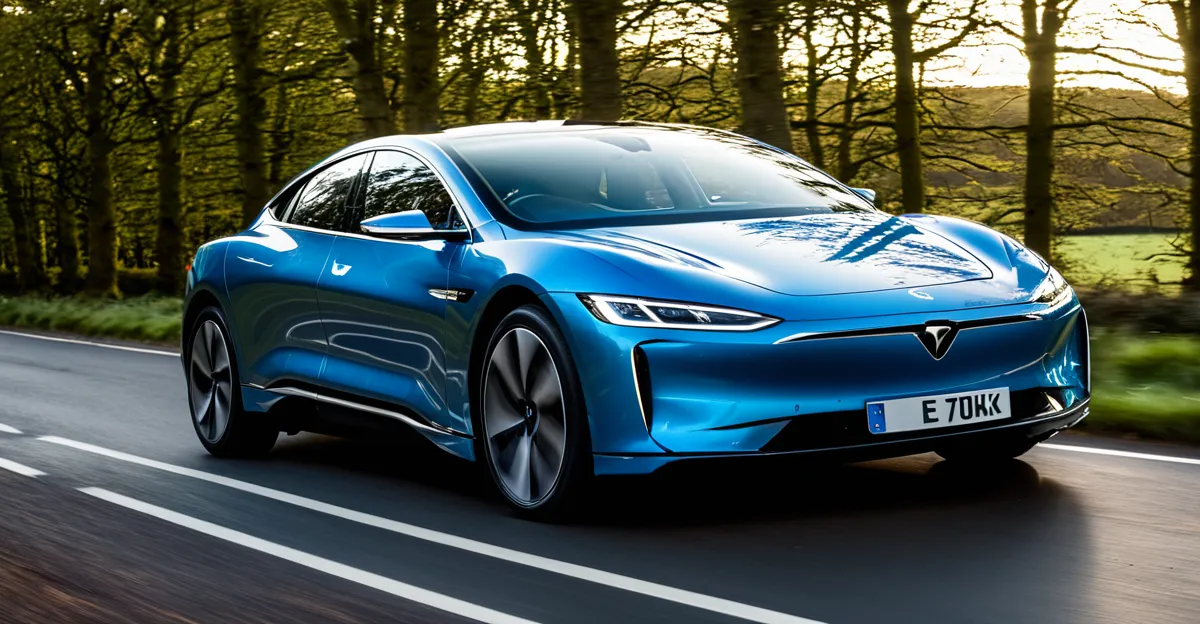The Current Landscape of Electric Vehicles in the UK
The Electric Vehicles UK market has shown remarkable growth, with adoption rates climbing steadily. Current statistics reveal that EVs account for a significant portion of new car sales, supported strongly by increasing consumer interest and affordability. The EV Market Overview highlights key players like Tesla, Nissan, and Jaguar Land Rover, who dominate alongside emerging UK manufacturers investing in electric mobility.
Government policies play a crucial role in shaping the landscape. Incentives such as purchase grants, reduced road taxes, and exemption from congestion charges have boosted Electric Vehicles UK adoption rates considerably. The UK government’s commitment to phasing out petrol and diesel vehicles by 2030 strengthens this momentum, making EVs more accessible and appealing to a wider audience.
In parallel : How does the UK automotive industry impact local economies?
This market environment fosters innovation and competition, encouraging ongoing improvements in vehicle performance and consumer choice. These developments reinforce the positive trajectory seen in EV Adoption Rates, with projections indicating a continued upward trend as infrastructure grows and technology advances. As a result, the UK stands as one of the leading markets for electric vehicles in Europe, driven by a combination of policy support, brand commitment, and enthusiastic consumer response.
Technological Advancements and Their Impact on Vehicle Manufacturing
Advancements in EV technology are dramatically shaping UK vehicle manufacturing. Emerging battery innovations, such as solid-state batteries, promise higher energy density, faster charging, and improved safety compared to traditional lithium-ion designs. This shift compels manufacturers to invest in new production methods tailored for these advanced batteries, significantly impacting their supply chains and factory layouts.
Additional reading : How Has the UK’s Automotive Industry Evolved Over Recent Years?
UK automakers are altering production processes to incorporate modular platforms that accommodate the unique demands of electric drivetrains and battery packs. This transition enables greater flexibility and efficiency in manufacturing, supporting the wider automotive innovation ecosystem.
Integration of smart and autonomous features in new EV models is another key trend. Manufacturers are embedding sensors, software, and connectivity solutions, making EVs smarter and more responsive. These technologies not only enhance driver experience but also align with the future trajectory of autonomous mobility.
The interplay between evolving EV technology and UK vehicle manufacturing creates opportunities to modernize the industry while addressing environmental goals. By embracing these innovations, British automakers can maintain competitiveness amid rapid change and growing global demand for electric vehicles.
Infrastructure Development and Challenges
Expanding EV charging infrastructure in the UK is critical to supporting the increasing number of Electric Vehicles UK on the roads. Coverage improvements are underway, focusing on a blend of urban hubs and rural regions. Urban areas benefit from fast and ultra-rapid chargers, while rural zones see growing investment in destination charging points, addressing the diverse needs of drivers.
Innovations in charging technology aim to reduce wait times and improve convenience. Wireless charging and vehicle-to-grid solutions are emerging, though still in early stages. Realistically, widespread fast-charging availability remains essential to meet current EV Adoption Rates and consumer expectations.
Investment from both government and the private sector fuels infrastructure expansion. The UK government’s funding incentives encourage rapid deployment of public chargers. Private firms contribute by partnering with retailers and property owners, creating accessible and reliable charging networks.
Despite progress, challenges persist: uneven infrastructure distribution can hinder adoption in less populated areas, and standardisation issues complicate user experience. Continued collaborative efforts between policymakers, industry stakeholders, and technology providers are vital for overcoming these hurdles and ensuring that Electric Vehicle Support evolves in tandem with market growth.
Economic Impacts on Employment and Industry Dynamics
Electrification significantly reshapes automotive jobs UK, shifting from traditional manufacturing roles to specialized tasks in battery production and software integration. This transition challenges workers familiar with internal combustion engine components, as new skills become essential for maintaining competitiveness in the evolving EV industry economic impact.
To address workforce disruption, reskilling initiatives and partnerships with technical colleges are expanding. These programs focus on training employees in battery technology, electric drivetrains, and vehicle software, ensuring a smoother workforce transition. For instance, UK manufacturers are investing in in-house academies that blend practical and theoretical learning tailored to electric vehicle demands.
Emerging business opportunities also play a crucial role. The rise of EV-related sectors—including battery recycling, charging infrastructure development, and software services—creates fresh employment prospects. This diversification promotes broader economic resilience despite shifts in traditional production.
Ultimately, the UK’s approach balances technological progress with social responsibility. Effective workforce adaptation strategies support both industry growth and job security, demonstrating how the EV industry economic impact extends beyond manufacturing to influence the wider labour market positively.
Policy, Regulation, and Strategic Roadmaps
UK Government EV Policy shapes the trajectory of Electric Vehicles UK by establishing clear emission regulations and automotive strategy frameworks aimed at accelerating EV adoption. The government’s strategy includes ambitious targets, such as banning the sale of new petrol and diesel vehicles by 2030, directly influencing manufacturers’ product development timelines and investment decisions. Regulatory milestones enforce stricter emission standards and promote incentives, aligning with broader climate goals.
Collaboration is essential for policy effectiveness. Industry groups, government bodies, and environmental organisations work closely to ensure regulations reflect technological feasibility and market realities. This partnership helps identify practical pathways for manufacturers, including funding for charging infrastructure and support for research in EV technology.
The strategic roadmap also addresses challenges in scaling up production and infrastructure, balancing innovation with environmental compliance. By continuously updating policies based on emerging technology and market feedback, the UK government fosters a dynamic regulatory environment that encourages sustainable growth in the EV sector.
These policies not only support increased EV Adoption Rates but also signal long-term commitment, reassuring consumers and businesses about the durability of government backing for electric mobility. This regulatory certainty remains key to sustaining momentum in the evolving EV Market Overview.
Evolving Consumer Adoption and Behavioural Trends
Consumer decisions shape the Electric Vehicles UK market significantly, with motivations and obstacles driving UK EV consumer trends. Key motivators include cost savings on fuel and maintenance, growing environmental awareness, and improved vehicle performance. These benefits encourage more drivers to consider adopting electric vehicles for personal and commercial use.
Conversely, barriers persist. Concerns over vehicle range, charging infrastructure availability, and upfront costs remain prominent among potential buyers. Understanding these challenges helps manufacturers and policymakers tailor strategies to bolster trust and convenience in EV ownership.
Demand patterns have shifted recently, with increased interest in SUVs and larger electric vehicles, reflecting wider consumer preferences in the UK market. Commercial fleets also exhibit growing adoption rates due to operational cost advantages and regulatory pressures.
Education and outreach play vital roles in transforming public perception. Clear, accessible information about incentives, environmental benefits, and vehicle capabilities enhances consumer confidence. Combining these efforts with expanding infrastructure and competitive pricing advances sustained growth.
In sum, analysing UK EV consumer trends reveals a nuanced picture of enthusiasm tempered by practical concerns. Addressing these factors is crucial for maintaining positive momentum in EV adoption rates and supporting the evolving EV market overview within the UK.







